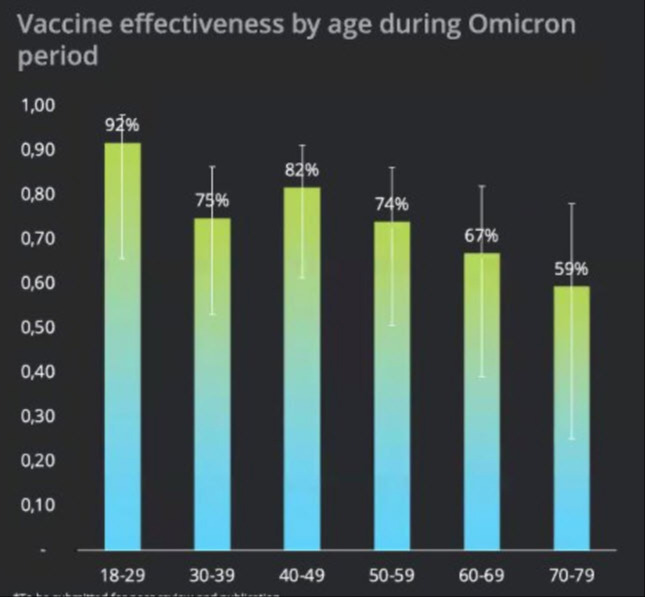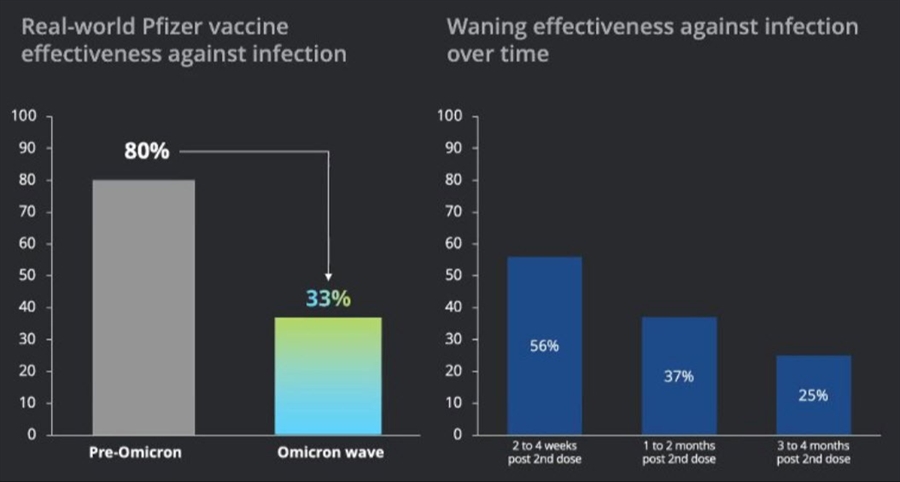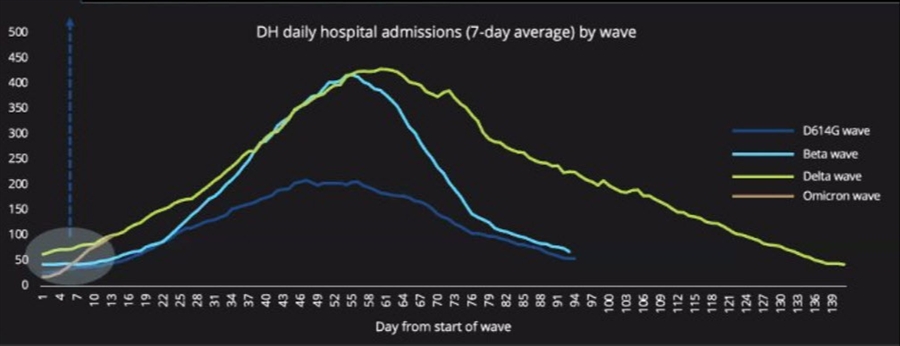
The first major study of real world data from South Africa's omicron outbreak has been released.
The major finding is that that risk of hospital admissions for adults is 29% lower than in the March 2020 pandemic wave. That's obviously better but it's not exactly the super-mild strain everyone has been hoping for.
In terms of the vaccine, people are 70% less likely to be hospitalized with two shots. That compares to 93% in the delta wave. It also falls to 59% in those aged 70-79, perhaps a sign of waning immunity as that cohort was vaccinated earlier. Breakthrough infections are common but vaccinated people are still 33% less likely to be infected (compared to 80% in delta).

One worrisome factor is that South Africa has high natural immunity with as many as 70% of South Africans showing covid antibodies. That may leave countries that have fared better in previous waves (like China) more vulnerable.
The report also highlights anecdotal reports that people not hospitalized aren't getting as sick, with most recoveries in three days.
Most importantly. while omicacases are growing much faster than during the delta wave, but hospitalisations are slower. South Africa has reached 60% of cases compared to the delta peak but only 20% of the hospital admissions of the Delta wave.

The one data point that's particularly troubling is that people with delta still have a 40% chance of reinfection with omicron. The hope was that omicron would replace and erase delta but there's a growing chance they could exist side-by-side.
This finding that risk of hospital admissions among adults with covid19 was 29% lower for Omicron than in March 2020 pandemic wave isn’t as large a reduction as I hoped for given high immunity in South Africa and continued suggestion Omicron is less severe https://t.co/GuZJjzFF3O
— Scott Gottlieb, MD (@ScottGottliebMD)
The next big test will be the UK, where cases are exploding. Health Secretary Javid said the doubling time of omicron is around 2 days.
My chief concern continues to be China and the likelihood of lockdowns there resulting in a further hit to the global supply chain.



